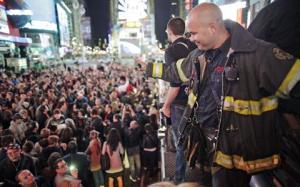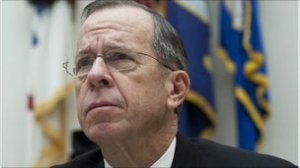Obama at bottom of his popularity and further confidence broken by Poll Results
India, stand by to welcome a wounded American President. A crushing defeat in the mid-term Congressional elections stares President Obama’s Democratic Party on the eve of his four-nation trip that begins with a three-day Mumbai-Delhi swing later this week. The expected rout is likely to impact his agenda for the visit, which has already been heavily weighted towards economic issues at the expense of a strategic outreach with an eye on Tuesday’s polls.
But it has not made much difference, and things don’t look good for Obama. A 12-foot-high stack of pumpkins on the White House lawns on Sunday generated jokes about why Democrats are running scared on Halloween, which Obama celebrated with his kids after taking a break from the pell-mell of last-minute campaigning.
Democrats are in danger of losing both the House of Representatives (where all 435 seats are at stake) and nearly a third of the 100-member Senate, besides a host of governorships and state legislatures in play.
Almost every opinion poll has projected a heavy defeat for the Democrats, with the certain loss of the House of Representatives and possibly even the Senate. Republicans are poised to erase the 39-seat difference in the 435-member House to take control of the chamber.
In the words of Harvard Historian Professor James T. Kloppenberg
Professor James T. Kloppenberg ‘s authored book has been published on just the past Sunday by Princeton University Press.
Professor chose to focus on the influences that shaped President Barack Obama’s view of the world, he interviewed the president’s former professors and classmates, combed through his books, essays and speeches, and even read every article published during the three years Obama was involved with the Harvard Law Review (“a superb cure for insomnia,” Kloppenberg said). What he did not do was speak to Obama. “He would have had to deny every word,” Kloppenberg said with a smile. The reason, he explained, is his conclusion that Obama is a true intellectual — a word that is frequently considered an epithet among populists with a robust suspicion of Ivy League elites. In New York City last week to give a standing-room-only lecture about his forthcoming intellectual biography, Reading Obama: Dreams, Hopes, and the American Political Tradition, Kloppenberg explained that he sees Obama as a kind of philosopher president, a rare breed that can be found only a handful of times in US history.
“There’s John Adams, Thomas Jefferson, James Madison and John Quincy Adams, then Abraham Lincoln and in the 20th century just Woodrow Wilson,” he said. To Kloppenberg the philosophy that has guided Obama most consistently is pragmatism, a uniquely American system of thought developed at the end of the 19th century by William James, John Dewey and Charles Sanders Peirce. It is a philosophy that grew up after Darwin published his theory of evolution and the Civil War reached its bloody end.
Pragmatism maintains that people are constantly devising and updating ideas to navigate the world in which they live; it embraces open-minded experimentation and continuing debate. “It is a philosophy for skeptics, not true believers,” Kloppenberg said. Those who heard Kloppenberg present his argument at a conference on intellectual history at the City University of New York’s Graduate Center responded with prolonged applause. “The way he traced Obama’s intellectual influences was fascinating for us, given that Obama’s academic background seems so similar to ours,” said Andrew Hartman, a historian at Illinois State University who helped organize the conference.
Kloppenberg chose to focus on one slice of the president’s makeup: his ideas. In the professor’s analysis the president’s worldview is the product of the country’s long history of extending democracy to disenfranchised groups, as well as the specific ideological upheavals that struck campuses in the 1980s and 1990s. He mentions, for example, that Obama was at Harvard during “the greatest intellectual ferment in law schools in the 20th century,” when competing theories about race, feminism, realism and constitutional original intent were all battling for ground.
Obama was ultimately drawn to a cluster of ideas known as civic republicanism or deliberative democracy, Kloppenberg argues in the book . Taking his cue from Madison, Obama writes in his 2006 book The Audacity of Hope that the constitutional framework is “designed to force us into a conversation,” that it offers “a way by which we argue about our future.” This notion of a living document is directly at odds with the conception of Supreme Court Justice Antonin Scalia, who has spoken of “the good, old dead Constitution.”
Kloppenberg compiled a long list of people who he said helped shape Obama’s thinking and writing, including Weber and Nietzsche, Thoreau and Emerson, Langston Hughes and Ralph Ellison. Contemporary scholars like historian Gordon Wood, philosophers John Rawls and Hilary Putnam, anthropologist Clifford Geertz and legal theorists Martha Minow and Cass Sunstein (who is now working at the White House) also have a place.
Despite the detailed examination, Kloppenberg concedes that Obama remains something of a mystery. “To critics on the left he seems a tragic failure, a man with so much potential who has not fulfilled the promise of change that partisans predicted for his presidency,” he said. “To the right he is a frightening success, a man who has transformed the federal government and ruined the economy.”He finds both assessments flawed. Conservatives who argue that Obama is a socialist or an anti-colonialist (as Dinesh D’Souza does in his book “The Roots of Obama’s Rage”) are far off the mark, he said.
“Adams and Jefferson were the only anti-colonialists whom Obama has been affected by,” he told the audience in New York. “He has a profound love of America.” And his opposition to inequality stems from Puritan preachers and the social gospel rather than socialism. As for liberal critics, Kloppenberg took pains to differentiate the president’s philosophical pragmatism, which assumes that change emerges over decades, from the kind of “vulgar pragmatism” practiced by politicians looking only for expedient compromise. (He gave former President Bill Clinton’s strategy of “triangulation” as an example.)
Always Yours——— As Usual——– Saurabh Singh









Impressions of Visitor & Few Replies